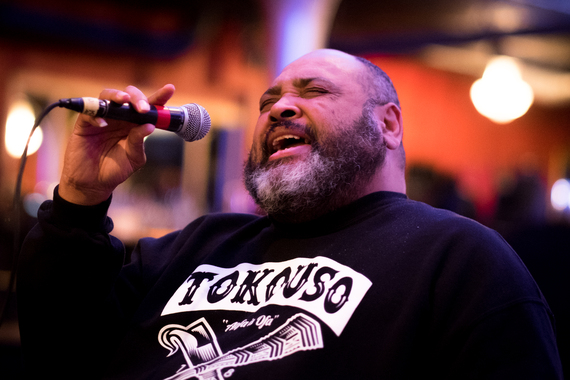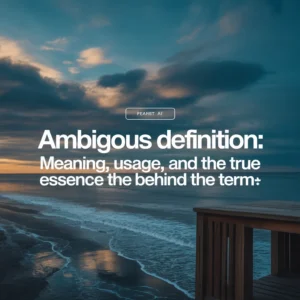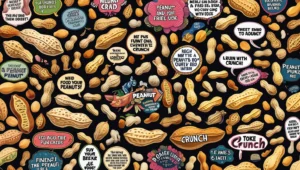George “Fiji” Veikoso (born 10 May 1970 in Tailevu, Fiji) emerged as a cultural icon whose music transcended islands and generations. With a rich fusion of reggae, R&B, hip‑hop, jazz, and traditional Fijian sounds like vude and meke, Fiji became the definitive voice of Polynesian reggae.
His debut album in 1994, Evolution, launched a musical journey blending soulful vocals with deeply rooted Pacific identity. Through award‑winning albums like Born & Raised, iconic singles such as “Lia”, and even contributions to Baywatch Hawaii and Blue Crush, he earned global respect.
Honoured with Hawaii’s Na Hoku Hanohano Awards, Pacific Music Awards, and a Lifetime Achievement Award, Fiji’s legacy endures as his music continues to uplift, unite, and inspire.
Early Life & Musical Roots
Born in the Tailevu province of Fiji on 10 May 1970, George Brooks Veikoso began singing in church and performing locally. His first paid performance—earning F$5—sparked a journey supported by musical relatives, including jazz and gospel influences Fiji Sun+13PMN | Pacific Media Network+13The Times of India+13. Raised between Fiji and Hawaii, music served both as personal passion and cultural expression.
Move to Hawai‘i & Emergence of the “Lost Coast Sound”
Following Fiji’s 1987 political coup, Veikoso relocated to Hawaii, integrating into the local music scene and helping develop what came to be known as the Lost Coast Sound—a vibrant blend of Fijian traditional motifs with reggae, R&B, and hip‑hop 247 News Around The WorldPMN | Pacific Media Network+1PMN | Pacific Media Network+1. He joined Fijian bands and soon launched a solo career, positioning himself as a representative of Pacific Island identity in an overseas context.
Discography & Creative Highlights
- Evolution (1994): A breakthrough debut embodying island‑hip‑hop and reggae fusion Muzic.NZPMN | Pacific Media Network.
- Born & Raised (1997): Elevated his popularity with classic island reggae themes, later reissued as Born & Raised II: The Rebirth 247 News Around The World+10Muzic.NZ+10The Economic Times+10.
- Subsequent albums like Indigenous Life, Love & Roots, and others showcased his flexibility across genres and languages, with songs in multiple Pacific languages RNZ+5PMN | Pacific Media Network+5Muzic.NZ+5. By 2023, his music had exceeded 500 million streams globally PMN | Pacific Media Network+1PMN | Pacific Media Network+1.
Signature Songs & Cultural Impact
Standout tracks include:
- “Lia”: A Pacific anthem known across generations for its heartfelt melody and cultural resonance saudianewz.com+15Fiji Sun+15Wikipedia+15.
- “Symphony of Love”, “Nasty”, “Good Thing”: Highlight how Fiji blended island grooves with modern pop/reggae sensibilities 247 News Around The World+4The Economic Times+4The Economic Times+4.
His distinctive infusion of traditional Fijian vude chants, meke rhythms, and themes of vanua, identity, and heritage echoed through his lyrics and compositions Wikipedia+4ABC+4PMN | Pacific Media Network+4.
Stage Presence & Transformative Concerts
Throughout his Alaska Asia‑Pacific tours and Hawai‘i’s annual Birthday Bash, Fiji delivered culturally enriched performances. Shows often featured indigenous dancers and traditional drumming, blending music and spectacle to represent Fijian heritage on international stages The Economic Times.
In 2024, he organized his first Fiji Homecoming concert in Nadi, Fiji—a sold‑out milestone that brought together thousands of fans across the Pacific The Sun+3PMN | Pacific Media Network+3PMN | Pacific Media Network+3.
Film & Television: Baywatch Hawaii, Blue Crush
Fiji co‑wrote the theme song “Let Me Be the One” for Baywatch Hawaii, filmed between 1999–2001, enhancing his visibility beyond music PMN | Pacific Media Network+4PMN | Pacific Media Network+4The Economic Times+4. He also appeared in the 2002 surf movie Blue Crush, further embedding his image in popular culture The Sun+2PMN | Pacific Media Network+2The Economic Times+2.
Awards, Honors & Industry Recognition
- 1998 Nā Hōkū Hanohano Awards: Male Vocalist of the Year and Favourite Entertainer in Hawaii The Economic Times+7Muzic.NZ+7RNZ+7.
- 2014 Pacific Music Awards: Best Pacific International Artist The Economic Times+6Muzic.NZ+6247 News Around The World+6.
- 2021 Pacific Music Awards Lifetime Achievement Award (from Manukau Institute of Technology) honoring over four decades of music contribution RNZ+4Muzic.NZ+4NewsFinale+4.
Personal Challenges & Resilience
In later years Fiji performed in a wheelchair due to mobility issues and gout, but consistently refused to let his health affect his voice or stage presence ABC+9NewsFinale+9247 News Around The World+9. Despite adversity, he continued touring and organizing festivals, maintaining his commitment to musical outreach PMN | Pacific Media NetworkABC.
Tragically, George “Fiji” Veikoso passed away on 24 July 2025, aged 55, at home in Suva surrounded by family. Tributes flowed from across the Pacific music community, recognizing him as the “GOAT of island reggae” and a cultural force whose spirit lives on Fiji Sun+12The Sun+12RNZ+12.
Influence & Mentorship
Fiji mentored countless Pacific artists and fostered unity through movements like TokoUso, using music as a platform for youth empowerment and social change RNZ+1247 News Around The World+1. His influence shaped the careers of artists including J Boog, Josh Tatofi, and Maoli, and extended to Fijian stalwarts like Laisa Vulakoro, who considered him her idol and a musical trendsetter Wikipedia+7ABC+7PMN | Pacific Media Network+7.
Legacy & Lasting Influence
Fiji’s legacy is multifaceted: blending tradition and innovation, advancing Pacific music globally, and inspiring emotional connection through song. He redefined island reggae, making space for youth voice, cultural pride, and emotional authenticity. His influence persists, with awards, festivals, and musicians honoring his work posthumously PMN | Pacific Media NetworkThe Economic TimesABC.
Discography & Key Collaborations
Albums: Evolution (1994), Born & Raised (1997; later Rebirth), Love & Roots, Indigenous Life, and more.
Singles: “Lia”, “Symphony of Love”, “Good Thing”, “Nasty”, “Let Me Be the One” (Baywatch theme).
Collaborations: Recording and touring with J Boog, Maoli, Josh Tatofi; songwriting with Glen Medeiros; shared stages with Gladys Knight, Aaron Neville, Beres Hammond, Damian “Jr. Gong” Marley, Inner Circle ABCFiji TravellerMuzic.NZPMN | Pacific Media Network.
Conclusion
George “Fiji” Veikoso’s journey from a small Fijian island to global stages exemplifies the power of music rooted in identity and innovation. His mastery in blending traditional Fijian culture with reggae, R&B, and hip‑hop made him a trailblazer. He earned prestigious awards, reached millions of listeners, and became the voice of the Pacific, uniting generations. His courage amid illness and dedication to cultural advocacy reinforced his role as more than an artist—he was a mentor, humanitarian, and legacy. Although he passed away in July 2025, Fiji’s voice continues to echo through every note, reminding us that music transcends boundaries and time.
Frequently Asked Questions
Q1: Who was George “Fiji” Veikoso? A: Known professionally as Fiji, George Veikoso was a Fijian‑Hawaiian singer, songwriter, producer, and pioneer of Polynesian reggae (Island reggae) who blended traditional Fijian music with reggae, R&B, hip‑hop, and jazz.
Q2: What was his most famous song? A: “Lia” is considered his signature ballad and an anthem across the Pacific. Others like “Symphony of Love,” “Good Thing,” and “Nasty” were also highly popular.
Q3: What awards did Fiji receive? A: He won Hawai‘i’s Nā Hōkū Hanohano Awards (Male Vocalist and Favourite Entertainer, 1998), Pacific Music Awards including Best Pacific International Artist (2014), and Lifetime Achievement in 2021.
Q4: What was the Lost Coast Sound? A: A genre Fiji helped define that fused Pacific Island musical elements with reggae, hip‑hop, R&B, jazz, and Fijian chants and rhythms.
Q5: Did he perform despite illness? A: Yes. Fiji performed even when using a wheelchair due to mobility issues and gout, and he continued to tour and produce music wholeheartedly.
Q6: What is his wider legacy? A: Fiji not only recorded hit music but mentored younger Pacific artists, led cultural initiatives to preserve Fijian identity, and delivered iconic live performances celebrated across the Pacific and Hawai‘i.
Q7: How did he die? A: He passed away peacefully at home in Suva, Fiji, on 24 July 2025, at 55, surrounded by family. His passing was widely mourned as a major loss for Pacific music

Zoey Allen is the pun-loving mastermind behind Punfully.com, a hub for clever wordplay, creative humor, and all things pun-tastic. With a knack for turning everyday language into laugh-out-loud moments, Zoey has been delighting audiences with her unique sense of humor and witty insights.














